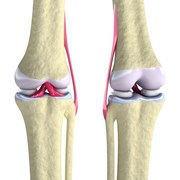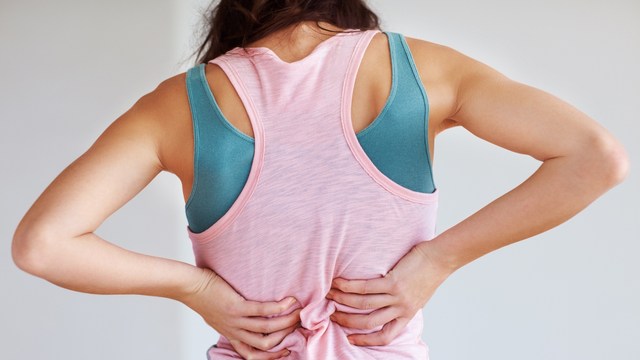When you are overweight, something on your body has to absorb the constant overload. Many times, it is your joints—your knee joints to be exact.
I have a friend who lost over 90 pounds and one of his first comments was this: “I feel much less pressure and pain in my knees when I walk.” That makes sense to me.
There is research to back up his statement. Lead researcher Christopher Edwards of Penn State College of Medicine said, "Our research on patients who were obese with early-onset knee osteoarthritis showed that those individuals who underwent isolated weight loss via bariatric surgery and lost an average of 57 pounds within the first six months significantly improved their knee pain, stiffness and physical function. Quality of life, activities of daily living and sports activity also improved; all of this without other arthritic treatments." This research was presented at the American Orthopaedic Society for Sports Medicine’s Specialty Day program.
Osteoarthritis of the knee is one of the five leading causes of disability among elderly men and women in the U.S., and costs $185 billion in out-of-pocket expenditures each year. Obesity is one of the leading risk factors for the disease.
The study followed 24 adult patients who ranged in age from 30 to 67 and were diagnosed as obese with clinical and radiographic evidence of knee OA. The Western Ontario and McMaster (WOMAC) Index of Osteoarthritis and Knee and Osteoarthritis Outcome Score (KOOS) surveys were administered at a pre-bariatric surgery baseline and at six and 12 months post surgery.
"Each individual had some kind of improvement in their pain from losing weight, some more than others. There are few studies that have investigated the role of isolated weight loss in the absence of additional arthritis treatment on those individuals with radiographically confirmed OA.
Further research still needs to be performed to investigate whether knee arthritis symptom improvement continues over time and are applicable to those individuals who are simply overweight, but our research suggests a strong possibility of improvement," said Edwards.
Among the overweight athletes who I have trained, the most common complaint is knee stress and pain. If walking is difficult, running places even more demand on the knee joints.
According to the WebMD.com, a study showed that for each pound of body weight lost, there is a 4-pound reduction in knee joint stress among overweight and obese people with osteoarthritis of the knee. The results indicate that even modest weight loss may significantly lighten the load on your joints.
As Stephen P. Messier, PhD, of Wake Forest University wrote in the publication, Arthritis & Rheumatism, "the accumulated reduction in knee load for a 1-pound loss in weight would be more than 4,800 pounds per mile walked. For people losing 10 pounds, each knee would be subjected to 48,000 pounds less in compressive load per mile walked."
Although there is more research to be done, that's enough proof for me. Weight management is crucial to help maintain knee joint health.
Source:
Christopher Edwards of Penn State College of Medicine
WebMD.com
Stephen P. Messier, PhD, Wake Forest University
Mark Dilworth, BA, PES, CPT is a Certified Personal Trainer and former NCAA Division I athlete. Mark is the owner of My Fitness Hut, Her Fitness Hut, Sports Fitness Hut and My Nutrition Hut. Mark’s Fat Blaster Athletic Training System has been proven to give his clients the fit, sculpted and athletic-type bodies they want. Visit Mark’s main site:
Your Fitness University http://yourfitnessuniversity.com






Add a CommentComments
There are no comments yet. Be the first one and get the conversation started!